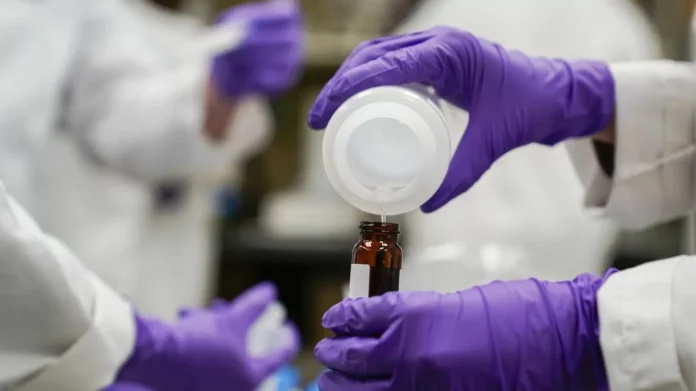Exposure to “Forever Chemicals” Linked to Poor Sleep Quality in Young Adults
In today’s fast-paced world, getting a good night’s sleep has become a luxury for many young adults. The constant pressure of work, social life, and other responsibilities can often leave us feeling exhausted and sleep-deprived. However, new research has found that there may be another culprit contributing to this exhaustion – exposure to certain types of “forever chemicals”.
Per- and polyfluoroalkyl substances (PFAS) are a group of man-made chemicals that have been used in various industries for decades. They are commonly found in products such as non-stick cookware, stain-resistant fabrics, and firefighting foam. However, these chemicals have been linked to a number of health concerns, including cancer, immune system disorders, and now, disrupted sleep.
A recent study published in the journal Environmental Health Perspectives found that young adults who had higher levels of four specific types of PFAS in their blood experienced worse sleep quality. The study, which involved over 700 participants aged 18-30, measured the levels of PFAS in their blood and assessed their sleep quality based on factors such as sleep duration, difficulty falling asleep, and daytime fatigue.
The results showed that individuals with higher levels of PFAS had a 16-31% higher likelihood of experiencing poor sleep quality. This is a concerning finding, as sleep plays a crucial role in our overall health and well-being. Lack of quality sleep can lead to fatigue, decreased productivity, and even serious health issues such as heart disease and diabetes.
So, how exactly do these “forever chemicals” disrupt our sleep? According to the researchers, PFAS can interfere with our body’s natural sleep hormone, melatonin. They can also affect the levels of other hormones that regulate our sleep-wake cycle. Furthermore, PFAS have been found to have a negative impact on the immune system, which can make individuals more susceptible to sleep disturbances.
While the study focused on young adults, the findings are relevant to all age groups. As PFAS are widely used and present in our environment, it is important for everyone to be aware of their potential effects on our health. However, the study’s lead author, Dr. Xiaoyun Ye, reassures that there are steps we can take to reduce our exposure to these chemicals.
First and foremost, it is important to be aware of products that contain PFAS and try to avoid them as much as possible. This can include switching to non-toxic cookware, avoiding stain-resistant fabrics, and opting for natural alternatives to household cleaning products. Additionally, individuals can also get their blood tested for PFAS levels and take necessary steps to reduce their exposure if the levels are found to be high.
The study’s findings have also sparked calls for stricter regulations on the use of PFAS. Currently, only a handful of these chemicals have been banned or restricted in certain products. However, experts believe that more needs to be done to protect public health. In the United States, the Environmental Protection Agency has set a health advisory level for PFAS in drinking water, but there are currently no federal regulations on the use of these chemicals in other products.
In conclusion, the link between PFAS exposure and poor sleep quality is a concerning discovery, especially for young adults who are already facing high levels of stress and sleep deprivation. It is crucial for individuals to be aware of these chemicals and take necessary steps to reduce their exposure. At the same time, it is important for governments and regulatory bodies to take action in protecting public health from the potential harm of “forever chemicals”. Let us prioritize our well-being and strive for a healthier and safer environment for all.

